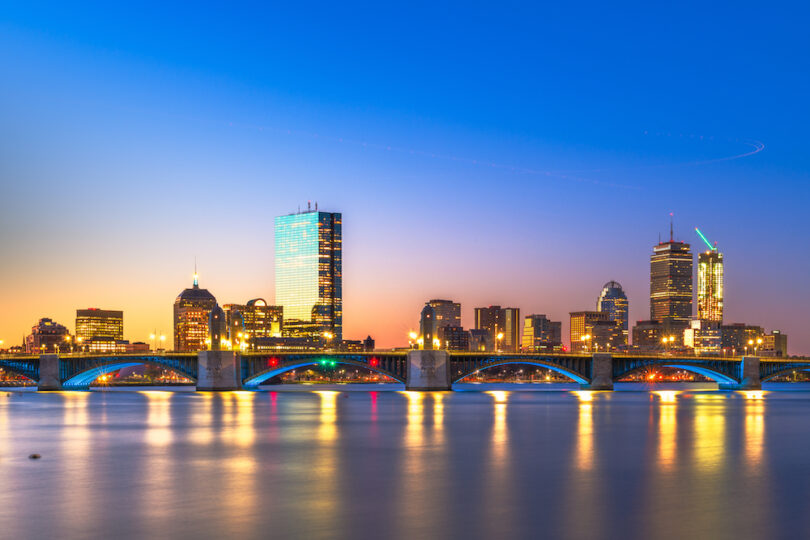The City of Boston has been awarded a Municipal Vulnerability Preparedness (MVP) grant of $330,500 to advance the design of coastal resilience strategies extending along Bennington Street in East Boston and Frederick’s Park in Revere, the first grant through Climate Ready Boston involving a project than spans two municipalities.
Climate Ready Boston has completed plans for Boston’s 47-mile coastline, and this project will build upon the recommended strategies presented in the 2022 Coastal Resilience Solutions for East Boston and Charlestown (Phase II) plan, as well as an ongoing regional study of the Belle Isle Marsh. The year-long project will develop schematic designs for an identified priority action area at Bennington Street, Frederick’s Park, and Belle Isle Marsh, located at the intersection of East Boston and Revere where flooding occurs today and will increase in the future. The project will use nature-based and hybrid solutions to reduce near- and long-term flood risk to surrounding residences and the MBTA Blue Line; improve public safety, multi-modal transportation, and recreational open space; and enhance the habitat value of Belle Isle Marsh.
“The effects of coastal flooding and climate change often hinder our residents from reaping the benefits of living in a coastal city,” said Mayor Michelle Wu. “I’m grateful to the Healey-Driscoll administration for their support in Boston’s commitment to climate resiliency and justice. Partnership and collaboration across municipal boundaries only strengthens environmental equity across communities, and I’m excited to see how Boston and Revere will utilize our MVP grant to advance our Green New Deal through climate preparedness.”
“With this grant, the cities of Boston and Revere will advance the design of coastal resilience infrastructure and recreational open space along Bennington Street in East Boston and Frederick’s Park in Revere. We are thrilled to partner with Revere on our first coastal resilience design project that physically extends across municipal boundaries,” said Catherine McCandless, Climate Resilience Project Manager with the City of Boston’s Climate Ready Boston initiative. “Flooding does not adhere to the jurisdictional lines we draw on maps, and this funding will help us take the next step to protect communities in both East Boston and Revere from the impact of coastal flooding while enhancing regional open space for people and wildlife.”
The City of Boston is among the 28 individual municipalities, one regional group, and one Tribe that received funding from the state’s Executive Office of Energy and Environment Affairs through its MVP Program. The MVP Program awarded a total of $31.5 million in grants to plan and implement climate change resilience projects.
“We have an unprecedented opportunity to position Massachusetts as a global leader in climate change mitigation and adaptation, and the MVP program is an important piece of our strategy,” said Energy and Environmental Affairs Secretary Rebecca Tepper. “The Healey-Driscoll Administration is glad to support our local communities with funding for innovative climate resilience projects that center environmental justice and nature-based solutions.”
Alongside Climate Ready Boston’s work, representatives from the City of Boston, City of Revere, Town of Winthrop, the Massachusetts Department of Conservation and Recreation, MassDOT, MBTA, The Nature Conservancy, Friends of the Belle Isle Marsh, Mystic River Watershed Association, Woods Hole Group, and HYM Investments have been participating in a multi-year study of the Belle Isle Marsh that was funded by the MVP grant program in 2021. The study of Belle Isle Marsh identified preliminary strategies to reduce flood risk to the neighboring communities and support ecological restoration opportunities to extend the marsh’s ability to function in the face of climate change. In addition to the funding awarded to Boston and Revere, the Town of Winthrop also received a MVP grant award to advance the design of a coastal resilience project at Morton Street and the Belle Isle Marsh Marine Ecology Park.
“Thank you to the Healey-Driscoll and Wu Administrations for prioritizing district-scale, nature based coastal resilience solutions that will protect residents of East Boston,” said Councilor Coletta. “This project is critical in addressing near-term flood risks that pose a threat to this community and operations of both Bennington Street and the Blue line.
This work builds on Mayor Wu’s Green New Deal. The City of Boston has completed coastal resilience plans for Boston’s 47- mile coastline, including neighborhood-level studies in East Boston, Charlestown, Downtown/North End, Dorchester, and South Boston. Additionally, Climate Ready Boston released the 2022 Heat Plan that outlines 28 strategies to address the effects of heat on Boston’s environmental justice neighborhoods.







